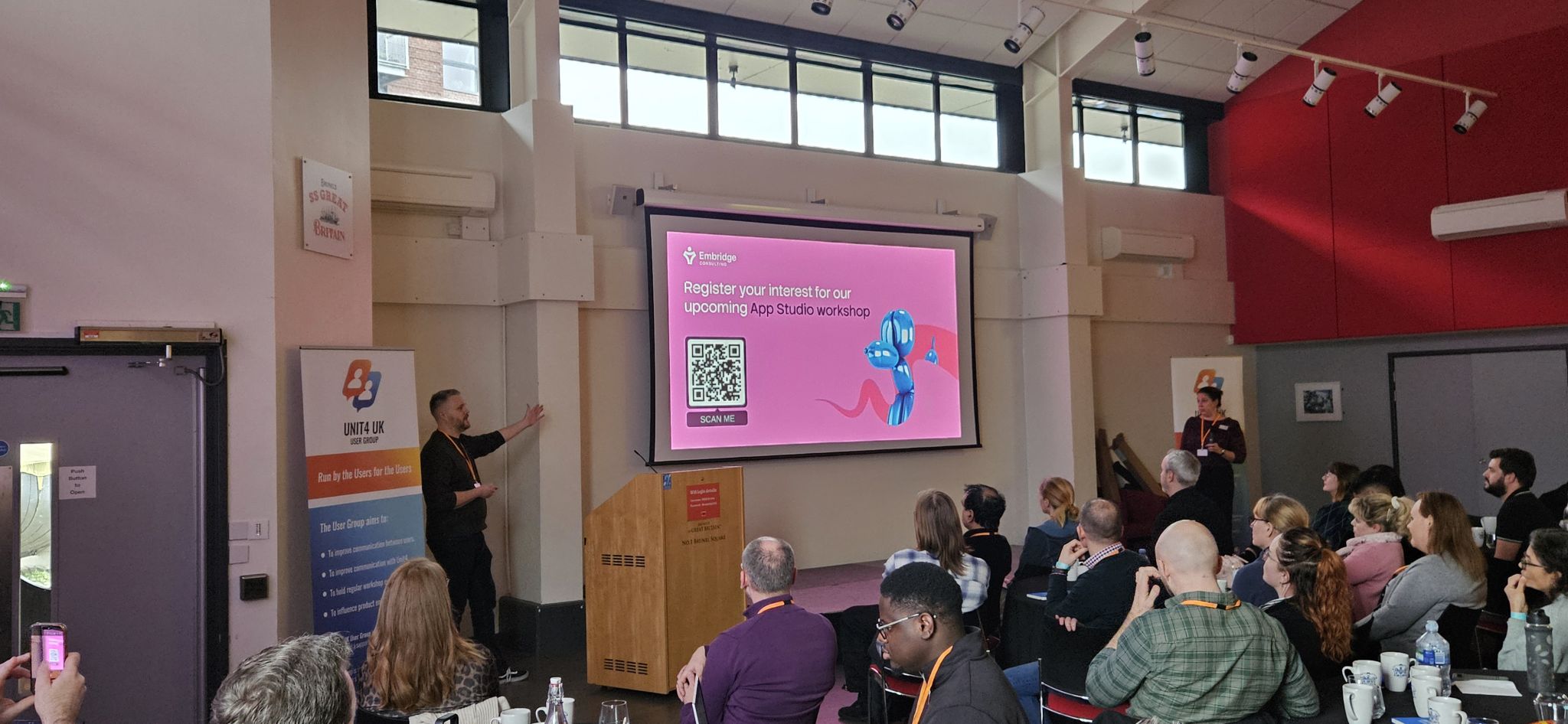How App Studio and APIs are shaping the future of Unit4
Five questions every council should ask whilst drafting their business case
ArticleSeptember 20257 min

Annabelle Fox

Local government reform in England is accelerating, with proposals for unitary authorities gathering momentum and deadlines for final business cases fast approaching. Councils face mounting pressure to produce submissions that not only meet approval requirements, but also lay the groundwork for long-term, sustainable transformation. Every decision made during this critical business case phase will shape financial resilience, operational continuity, and the trust communities place in their local authorities for years to come.
Drafting a strong business case is far from straightforward. Councils must weigh competing priorities, manage complex financial and operational interdependencies, and demonstrate evidence-based, practical strategies for change. They also need to ensure their approach considers legacy software systems, data quality frameworks, governance structures, and workforce alignment, all of which directly impact the success of local government reform.
This article draws on key findings from the free first guide in the Unitary Readiness Framework, providing councils with practical insight to navigate the Business Case phase of local government reform effectively. Before councils start mapping out the finer details, it’s worth pausing to consider five essential questions. These questions can help ensure a business case goes beyond simply ticking boxes, building genuine confidence in reform while safeguarding services and strengthening outcomes for local communities.
1. Do we have a clear baseline for unitary authority business cases?
A credible business case for local government reform starts with a comprehensive understanding of a council’s current position. Councils must have clear visibility of existing services, budgets, financial commitments, and contractual obligations to ensure their proposals are realistic and achievable. Without this baseline, assumptions about service delivery, cost savings, or organisational capacity risk going unchallenged, undermining the credibility of the business case.
Establishing a robust evidence base early allows councils to demonstrate transparency, accountability, and readiness for change. It also supports effective decision-making around legacy systems, technology stacks, and operational processes, helping local authorities present a compelling, evidence-backed case to stakeholders, residents, and central government. By grounding reform plans in solid, accurate data and insights, councils can strengthen their proposals, reduce risk, and show how the intended changes will deliver tangible benefits for communities.
2. Is our financial data fit for purpose?
Financial data quality is a critical factor in successful local government reform and one of the most common stumbling blocks for councils preparing business cases. Inaccurate reporting, duplicated records, incomplete datasets, and reliance on legacy systems can all undermine the integrity of financial planning and decision-making. Councils must assess whether their financial data is accurate, consistent, and complete enough to support robust, evidence-based decisions during the Business Case phase.
High-quality financial data is not just a technical requirement, it underpins transparency, accountability, and the credibility of the reform process. Poor financial data can lead to miscalculated savings, misaligned budgets, and flawed cost-benefit analyses, jeopardising both council services and community trust. By implementing effective financial data quality management practices, councils can consolidate information across multiple departments, standardise reporting formats, and ensure data is reliable for both internal planning and submission to central government.
Considering financial data alongside other key areas, such as governance structures, technology stack rationalisation, and organisational readiness, enables councils to produce a business case that demonstrates true preparedness for change. Councils that prioritise financial data integrity not only strengthen their proposals but also safeguard the continuity of services residents depend on, from social care and housing to libraries and waste management.
3. Are we integrating technology with reform strategy?
Technology is a central part of local government reform. Rationalising legacy software systems, consolidating platforms, and optimising the technology stack can improve efficiency, streamline service delivery, and provide a solid foundation for new unitary authorities. But implementing the technology alone isn’t enough. Councils also need to ensure systems align with governance structures, organisational processes, and staff readiness through effective digital adoption and change services.
Without proper training and support, employees often revert to old habits. Research from Mckinsey suggests that 70% of digital transformations fail, with a significant factor being poor user adoption and lack of engagement. This highlights the importance of not only implementing new technology, but also fostering an environment where staff are equipped and motivated to embrace change.
Taking a holistic approach ensures that technical improvements actually support wider reform objectives. When systems are integrated thoughtfully and staff are prepared to use them effectively, councils can reduce disruption, maintain service continuity, and create a stronger, evidence-backed business case that demonstrates readiness for change.
4. Have we mapped interdependencies across councils and services?
Merging authorities rarely operate in isolation. When councils merge or transition to unitary authorities, financial agreements, shared services, supplier contracts, and operational processes all create complex interdependencies that can complicate reform if overlooked. Early identification of these connections is crucial to avoid costly delays, duplicated effort, or service disruptions.
Understanding how these interdependencies fit into the broader reform strategy helps councils build a realistic, deliverable business case. It enables leaders to anticipate potential conflicts between services, align budgets and resources effectively, and manage contractual obligations proactively. By mapping dependencies across finance, governance, technology, and workforce, councils can reduce risk, maintain service continuity, and present a clear, evidence-backed case for reform. This approach not only strengthens proposals for central government but also helps maintain trust and confidence among staff and residents.
5. How will local government reform deliver real benefits for residents?
At the heart of reform is a simple question: what difference will it make for the people we serve? Councils must be able to clearly demonstrate how proposed changes will translate into better outcomes for communities. Beyond achieving operational efficiencies, reform should deliver better services, faster access, and more resilient local support networks.
A strong business case frames every decision around the resident experience. How will social care referrals be handled more effectively? Will housing support reach those who need it most? Are community services easier to access and more responsive? By connecting reform initiatives directly to tangible benefits, councils not only build a more compelling argument for approval but also foster trust and confidence among residents.
Considering the long-term impact is equally important. New unitary authorities should be designed to endure, with systems, governance, and staff fully aligned to sustain high-quality services well into the future. Placing residents at the centre of planning ensures reform doesn’t just tick regulatory boxes, it creates meaningful, lasting improvements in daily life, reinforcing the purpose and legitimacy of local government reform.
Building confidence in your council’s Business Case
These five questions are just the starting point for councils navigating the business case phase of local government reform. Each stage of reform brings its own challenges, from preparing shadow authorities to launching new unitary councils, and success depends on planning with clarity and purpose.
To support councils through this complex journey, Embridge Consulting has created the Unitary Readiness Framework Series, a set of free, three-part guides offering actionable insights at every stage of reform. The first paper, No Time to Waste: Building Strong Business Cases for Devolution, focuses on the Business Case phase of reform, helping councils establish a solid foundation, make evidence-based decisions, and position themselves for sustainable, community-focused outcomes. The following guides will cover phase two, the Shadow Authority, and phase three, the New Unitary, providing practical insights and checklists to support councils through every stage of local government reform.
DOWNLOAD OUR FREE GUIDEStart your council’s reform journey with confidence. Download the first whitepaper today to gain practical guidance, checklists, and strategies that ensure your business case is robust, credible, and centred on the communities you serve.



